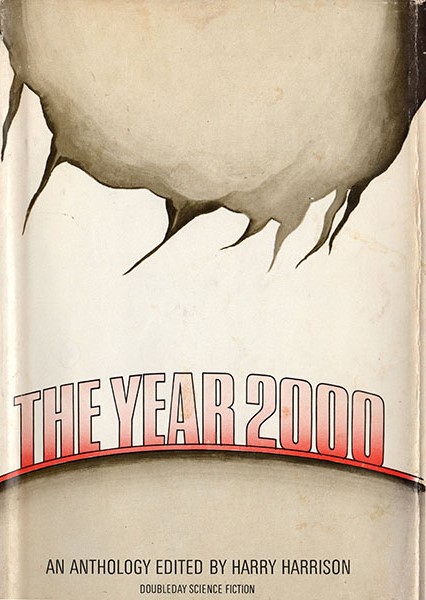
by Victoria Silverwolf
Clarke and Kubrick Minus One
A recent film has made many of us aware of the first year of the next century. But what about the last year of this century?
(You do know that 2000 will be the last year of the twentieth century and not the first year of the twenty-first century, right? I thought so.)
A new anthology of original science fiction stories attempts to offer a glimpse of that evocative year to come.
The Year 2000, edited by Harry Harrison

Cover art by Pat Steir.
Obviously, all the stories take place three decades from now. Other than that, they have a wide range of themes and styles, from old-fashioned tales of adventure to commentary on social issues to New Wave experimentation. Let's take a look.

![[February 10, 1970] Thirty Years To Go (<i>The Year 2000</i>, a science fiction anthology by Harry Harrison)](https://galacticjourney.org/wp-content/uploads/2025/02/THEYEARF51970.jpg)